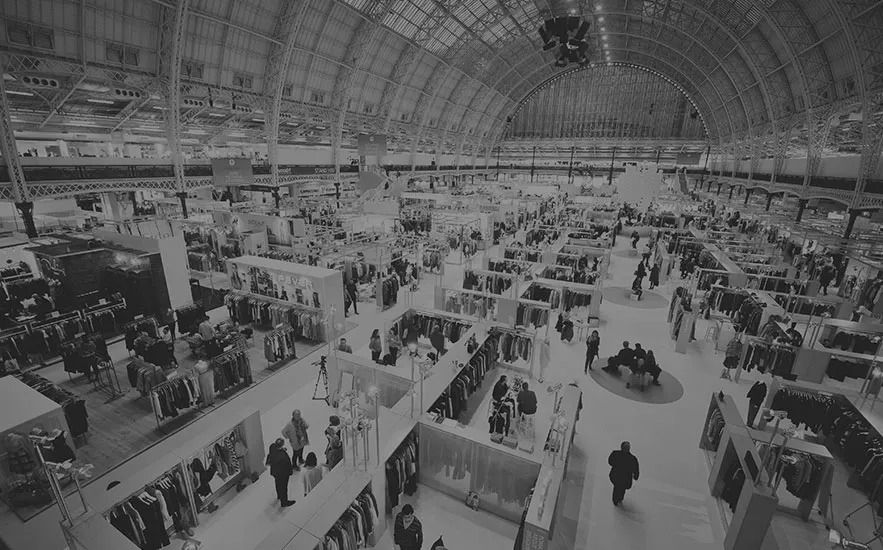THE AEO INTERNATIONAL DINNER: INSIGHTS FROM INDIA
)
The second AEO International Dinner of 2024 was held in the beautiful Cinnamon Rooms in Westminster, focusing on India, and kindly sponsored by RE Rogers India.
Senior AEO members were welcomed by AEO international organiser group vice chair Damion Angus from Montgomery Group, and Ravi Sethi (accompanied by his CEO, Sudhir Dhavan) from RE Rogers, a long-term sponsor and advocate for the region who last addressed this group 10 years ago. RE Rogers was founded in 1986 in India and now operates throughout the world, with members of its management team representing the logistics, freight forwarding, and broader supply sector on various associations and boards.
The evening started with an economic and political update:
- More than 630 million people voted from a population of 1.4 billion, resulting in a minority (but stable) government, which shows democracy in action and leads to carefully considered decisions.
- The election process is extensive given the size and scale of the region; however, the systems used are very efficient, robust, and fair.
- There is a stable government, which is good for business, and setting up new businesses is very simple, secure, and follows a legal process.
- Everyone is subject to the same laws and taxation, but one should be mindful of different cultures; for example, there are 22 different languages across the region and 20,000 dialects.
- It is no longer a requirement to have a ‘local CEO’; international businesses with their own leaders are very welcome.
- International exhibitors have not yet recovered to pre-COVID levels, losing approximately 35% of Chinese exhibitors, but they have been more than compensated for with regional exhibitors, and overall shows are bigger.
- Sales agents within the region help accelerate success but increasing the number of global exhibitors is key to future overall success.
- Russian industries such as defence and oil & gas are important; however, global sanctions are followed by individual companies.
Organiser landscape:
- Many large businesses have operated in the region for some time, such as Montgomery, Tarsus, Informa, and various Messes.
- There is a growing mid-level of organisers, including associations and local organisers who operate successfully.
- It was noted that it does not take time to get established, and there are many examples of great partnerships and joint ventures.
- The sector is vibrant; new companies should feel confident in setting up, businesses are growing, expanding, and making good money.
- Indian associations and local organisers are taking events overseas with a mix of Indian and international exhibitors and visitors.
- Strong IP is key; with this comes some protection, and they are seeing strong growth as market leaders.
- Success is aided by a strong local team, talking to local trusted partners, and being on the ground.
Infrastructure, demographics, exhibitors & visitors:
- India has the youngest population in the world, with 450 million middle-class people with high buying power.
- These people travel, spend money in restaurants and fitness and are connected to the world.
- Class-leading venues are available across the region, including Mumbai, Delhi, Hyderabad and Bangalore.
- Some venues are government-owned, some private (who are more willing to negotiate given the increase in venue capacity).
- Venue capacity has recently doubled, and they are being filled with new shows, whose tenancies are somewhat protected (save for elections and national activities).
- Chinese companies cannot attend Indian shows due to visa limitations but relaxations have started.
- There are some local laws as well as centralised laws which need to be thoroughly researched and understood.
- Price differences between local and international rate cards are becoming less - some associations also have a different rate card.
- The main currency for success in the region is still square metre sales (as opposed to seeking revenue outside square metres).
- Chinese visitors are coming back, but the recession across Europe is hampering growth in European visitors.
- Health & Safety (H&S) and sustainability are high on the agenda; more and more floor walkers are seen on-site actively monitoring builds and breaks.
- Major venues are working with major organisers to accelerate change; progress on tier 2 venues and with smaller shows is slower.
- More established suppliers are able to evidence their sustainability and H&S credentials, but research is key.
- Mobility is high, with visitors moving around the region to visit shows.
- Local organisers can run in excess of 100 shows.
- Avoiding religious holidays is very important - research is key.
Mergers & acquisitions:
- India has an active market; research and due diligence are key.
- The pattern tends to leave the incumbent in place to continue to drive growth with an extended earn-out.
- Employing the services of a good lawyer is key to success.
Much has changed since Ravi’s last visit; venues and infrastructure are now in place, the population is upwardly mobile, and there is a stable government with a ‘business first’ outlook. As ever, things change very quickly. Local knowledge, partnerships, and extensive research are key to success. The meeting closed with an optimistic future gaze as to how significant the Indian market would be in a further 10 years’ time!



